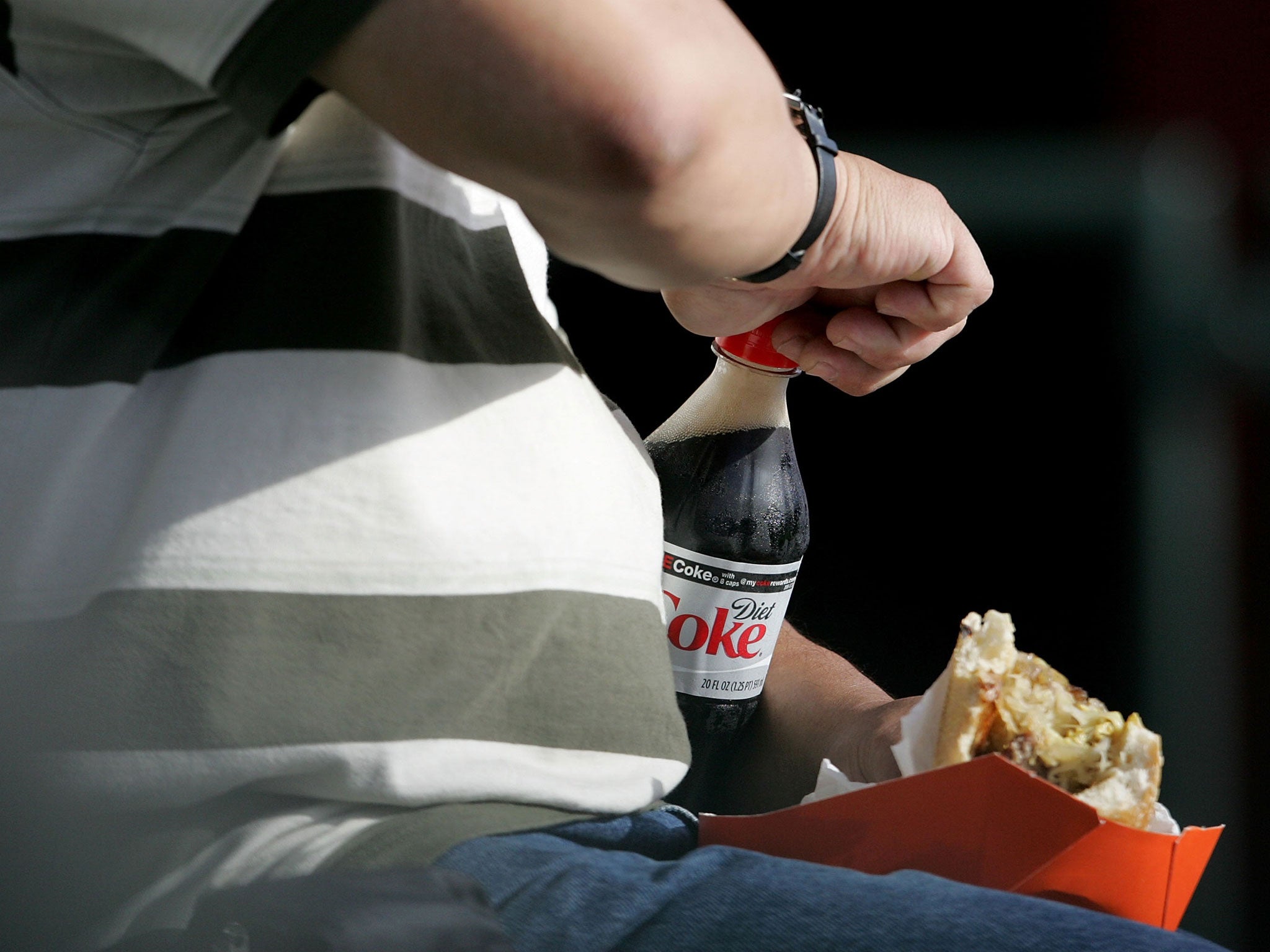Sugar-free diet drinks do not aid weight loss and are no healthier than alternatives, research suggests
Scientists found 'no solid evidence' to support perception that so-called 'diet' drinks are healthier

Your support helps us to tell the story
From reproductive rights to climate change to Big Tech, The Independent is on the ground when the story is developing. Whether it's investigating the financials of Elon Musk's pro-Trump PAC or producing our latest documentary, 'The A Word', which shines a light on the American women fighting for reproductive rights, we know how important it is to parse out the facts from the messaging.
At such a critical moment in US history, we need reporters on the ground. Your donation allows us to keep sending journalists to speak to both sides of the story.
The Independent is trusted by Americans across the entire political spectrum. And unlike many other quality news outlets, we choose not to lock Americans out of our reporting and analysis with paywalls. We believe quality journalism should be available to everyone, paid for by those who can afford it.
Your support makes all the difference.Artificially sweetened diet drinks make no difference to weight gain and should not be seen as healthier than their sugar-laden counterparts, according to a team of experts.
A review of research evidence concludes there is nothing to support claims that sugar-free versions of popular soft drinks can help combat obesity and related diseases such as Type 2 diabetes.
Industry-sponsored studies reporting "favourable" associations between diet drinks and weight loss may be biased, it claims.
There have been concerns that diet drinks, known as artificially sweetened beverages (ASBs), might lead people to consume more calories by stimulating sweet flavour taste buds.
The new study found that evidence relating to the healthiness of ASBs was inconclusive with randomised controlled trials (RCTs) producing mixed results.
Senior investigator Professor Christopher Millett, from Imperial College London's School of Public Health, said: "A common perception, which may be influenced by industry marketing, is that because 'diet' drinks have no sugar, they must be healthier and aid weight loss when used as a substitute for full sugar versions. However, we found no solid evidence to support this."
Manufacturing diet drinks was also said to have "negative consequences" for the environment. Up to 300 litres of water was required to produce a single half-litre plastic fizzy soft drink bottle.
The researchers pointed out that research supported by food or beverage companies was more likely to find no evidence of links between sugary drink consumption and obesity than non-industry sponsored research.
Similarly, ASB industry-sponsored research was "more likely to report favourable results and conclusions regarding ASB effects on weight control".
In many cases, researchers had had failed to disclose conflicts of interest relating to links with the food industry, it was claimed.
Co-author Dr Maria Carolina Borges, from the Federal University of Pelotas in Brazil, said: "The lack of solid evidence on the health effects of ASBs and the potential influence of bias from industry funded studies should be taken seriously when discussing whether ASBs are adequate alternatives to SSBs (sugar-sweetened beverages)."
Leading British nutritionist Professor Susan Jebb, from Oxford University, said despite the mixed evidence, there was no reason to believe that replacing sugary drinks with artificially sweetened alternatives did any harm.
She said: "For people seeking to manage their weight, tap water is without question the best drink to choose, for health and the environment, but for many people who are used to drinking sugary drinks, this will be too hard a change to make. Artificially sweetened drinks are a step in the right direction to cut calories."
Dietician Professor Tom Sanders, from King's College London, was also critical of the research, calling it "an opinion piece rather than a systematic review of the evidence".
He added: "The conclusion that reduced sugar or sugar-free drinks should not be promoted or seen as part of a healthy diet seems unwarranted and likely to add to public confusion."
Dr Alison Tedstone, chief nutritionist at Public Health England, said: "Our extensive evidence review showed swapping to low or no sugar drinks goes some way to managing calorie intake and weight.
"It's especially important for young people as they consume three times the amount recommended, mostly from soft drinks.
"However, maintaining a healthy weight takes more than just swapping one product for another. Calories consumed should match calories used, so looking at the whole diet is very important."
Press Association
Join our commenting forum
Join thought-provoking conversations, follow other Independent readers and see their replies
Comments